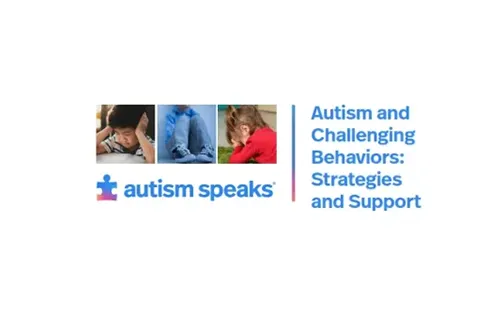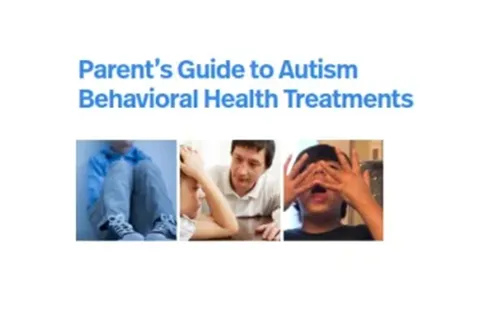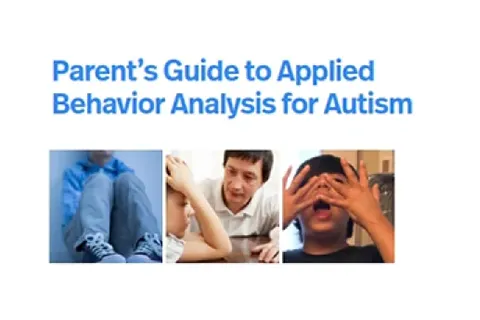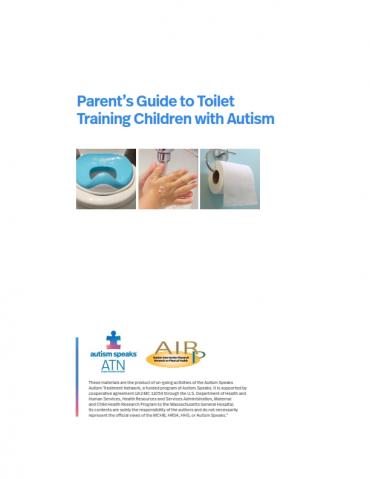Behavior Challenges
Behavioral issues are very common among children and adults with autism. Understanding behavior and responding to it in a positive way can help you overcome some of these challenges.
Autism Treatment Network Research on Challenging Behavior
Researchers with the Autism Speaks Autism Treatment Network (ATN) study challenging behavior in kids and teens with autism. Many children with autism have behavior problems. These can be hard on both the child and the family and caregivers. More than half of kids and teens with autism may be physically aggressive toward caregivers or other kids and grown-ups. This can include hitting, kicking and biting.
Other behavior problems can include:
- being hyperactive, anxious and worried
- hurting themselves by banging or hitting their heads
- biting their hands and fingers
Behavior problems happen more often if the child has trouble sleeping. This is more likely if they wake up in the middle of the night. Younger kids are more likely to hurt other people. But older kids and teens are more likely to hurt themselves, especially if they have trouble talking.
Talking, social skills, and daily living skills have all been shown to be better in children and teens who are good sleepers. Daily living skills include getting dressed, brushing teeth and making food. So, talking about sleep problems with a healthcare provider is important. Medicines like Risperidone and Aripiprazole are good at helping kids and teens be less irritable – or easily upset – and aggressive. Some other drugs may also help with behavior problems and have fewer side effects. Medications that help with behavior problems often make kids and teens gain weight. To help kids and teens stay at a healthy weight, health care providers can think about other medicines, too. A second medicine called Metformin may help when taking medicine for aggression. Many moms and dads of children with autism with big behavior problems have a hard time feeling good about being a parent. They also struggle to have friends. Treatments that help with behavior problems include Applied Behavioral Analysis (ABA), counseling, and medications. They can help the whole family feel better.
For the full reference list and more Frequently Asked Questions addressed by ATN research on challenging behavior, visit the Autism Care Network website.
- Download our one-page overview on Behavioral Health for quick tips you can use at home.
- Download our one-page overview on Anxiety for quick tips you can use at home.
- Download our one-page overview on Irritability for quick tips you can use at home.
*Disclaimer: This summary is based on research conducted by Autism Treatment Network (ATN) members. It is not a summary of the entire body of research literature available on this subject
Behavior Challenges
Highlights from the Challenging Behaviors Tool Kit
Parents Ask, Experts Answer: Challenging Behaviors
Over the years, parents have sought answers from experts to questions about their child's behaviors. Below is a sampling of helpful responses from some of the best professionals in their field:
My child is sometimes aggressive, what can help?
Parents seek help for son with autism and recurring behavioral crises
Mom perplexed by toddler running back and forth shaking things
Family in remote area seeks autism treatment guidance
Can ABA affect a teen on the mildly affected end of the spectrum?
Toilet Training Help
Many children with autism have difficulty learning to use the toilet. The Autism Speaks ATN/AIR-P Toilet Training Guide can help.
In addition, the blogs below from child development experts can help make potty training your child easier for you:
- Seven toilet training tips that help nonverbal children with autism
- Autism toilet training dilemma: Six-year-old fights going near bathroom
- Help for child with autism who forgets to use toilet when distracted
- How my son's toilet training dilemma led to some valuable information
Learn more in the Toilet Training Guide here.
Autism Speaks Advocacy
Access, affordability and quality of health care services are crucial factors influencing health outcomes for people with autism. Autism Speaks is committed to improving the health of people with autism by advocating for these services.
Learn more about Autism Speaks health care advocacy efforts.
Need personalized support?
Our Autism Response Team (ART) is specially trained to connect people with autism, their families, and caretakers to information, tools, and resources.
Contact ART



